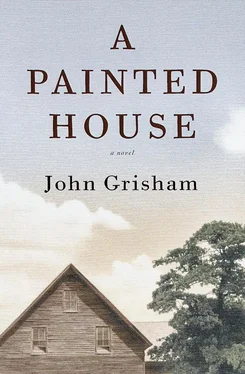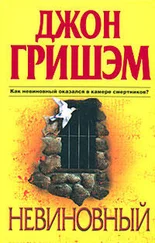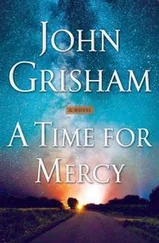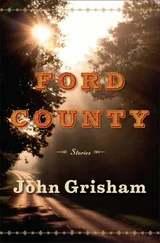John Grisham
A Painted House
For my parents, Weez and Big John,
with love and admiration
The hill people and the Mexicans arrived on the same day. It was a Wednesday, early in September 1952. The Cardinals were five games behind the Dodgers with three weeks to go, and the season looked hopeless. The cotton, however, was waist-high to my father, over my head, and he and my grandfather could be heard before supper whispering words that were seldom heard. It could be a “good crop.”
They were farmers, hardworking men who embraced pessimism only when discussing the weather and the crops. There was too much sun, or too much rain, or the threat of floods in the lowlands, or the rising prices of seed and fertilizer, or the uncertainties of the markets. On the most perfect of days, my mother would quietly say to me, “Don’t worry. The men will find something to worry about.”
Pappy, my grandfather, was worried about the price for labor when we went searching for the hill people. They were paid for every hundred pounds of cotton they picked. The previous year, according to him, it was $1.50 per hundred. He’d already heard rumors that a farmer over in Lake City was offering $1.60.
This played heavily on his mind as we rode to town. He never talked when he drove, and this was because, according to my mother, not much of a driver herself, he was afraid of motorized vehicles. His truck was a 1939 Ford, and with the exception of our old John Deere tractor, it was our sole means of transportation. This was no particular problem except when we drove to church and my mother and grandmother were forced to sit snugly together up front in their Sunday best while my father and I rode in the back, engulfed in dust. Modern sedans were scarce in rural Arkansas.
Pappy drove thirty-seven miles per hour. His theory was that every automobile had a speed at which it ran most efficiently, and through some vaguely defined method he had determined that his old truck should go thirty-seven. My mother said (to me) that it was ridiculous. She also said he and my father had once fought over whether the truck should go faster. But my father rarely drove it, and if I happened to be riding with him, he would level off at thirty-seven, out of respect for Pappy. My mother said she suspected he drove much faster when he was alone.
We turned onto Highway 135, and, as always, I watched Pappy carefully shift the gears — pressing slowly on the clutch, delicately prodding the stick shift on the steering column — until the truck reached its perfect speed. Then I leaned over to check the speedometer: thirty-seven. He smiled at me as if we both agreed that the truck belonged at that speed.
Highway 135 ran straight and flat through the farm country of the Arkansas Delta. On both sides as far as I could see, the fields were white with cotton. It was time for the harvest, a wonderful season for me because they turned out school for two months. For my grandfather, though, it was a time of endless worry.
On the right, at the Jordan place, we saw a group of Mexicans working in the field near the road. They were stooped at the waist, their cotton sacks draped behind them, their hands moving deftly through the stalks, tearing off the bolls. Pappy grunted. He didn’t like the Jordans because they were Methodists — and Cubs fans. Now that they already had workers in their fields, there was another reason to dislike them.
The distance from our farm to town was fewer than eight miles, but at thirty-seven miles an hour, the trip took twenty minutes. Always twenty minutes, even with little traffic. Pappy didn’t believe in passing slower vehicles in front of him. Of course, he was usually the slow one. Near Black Oak, we caught up to a trailer filled to the top with snowy mounds of freshly picked cotton. A tarp covered the front half, and the Montgomery twins, who were my age, playfully bounced around in all that cotton until they saw us on the road below them. Then they stopped and waved. I waved back, but my grandfather did not. When he drove, he never waved or nodded at folks, and this was, my mother said, because he was afraid to take his hands from the wheel. She said people talked about him behind his back, saying he was rude and arrogant. Personally, I don’t think he cared how the gossip ran.
We followed the Montgomery trailer until it turned at the cotton gin. It was pulled by their old Massey Harris tractor, and driven by Frank, the eldest Montgomery boy, who had dropped out of school in the fifth grade and was considered by everyone at church to be headed for serious trouble.
Highway 135 became Main Street for the short stretch it took to negotiate Black Oak. We passed the Black Oak Baptist Church, one of the few times we’d pass without stopping for some type of service. Every store, shop, business, church, even the school, faced Main Street, and on Saturdays the traffic inched along, bumper to bumper, as the country folks flocked to town for their weekly shopping. But it was Wednesday, and when we got into town, we parked in front of Pop and Pearl Watson’s grocery store on Main.
I waited on the sidewalk until my grandfather nodded in the direction of the store. That was my cue to go inside and purchase a Tootsie Roll, on credit. It only cost a penny, but it was not a foregone conclusion that I would get one every trip to town. Occasionally, he wouldn’t nod, but I would enter the store anyway and loiter around the cash register long enough for Pearl to sneak me one, which always came with strict instructions not to tell my grandfather. She was afraid of him. Eli Chandler was a poor man, but he was intensely proud. He would starve to death before he took free food, which, on his list, included Tootsie Rolls. He would’ve beaten me with a stick if he knew I had accepted a piece of candy, so Pearl Watson had no trouble swearing me to secrecy.
But this time I got the nod. As always, Pearl was dusting the counter when I entered and gave her a stiff hug. Then I grabbed a Tootsie Roll from the jar next to the cash register. I signed the charge slip with great flair, and Pearl inspected my penmanship. “It’s getting better, Luke,” she said.
“Not bad for a seven-year-old,” I said. Because of my mother, I had been practicing my name in cursive writing for two years. “Where’s Pop?” I asked. They were the only adults I knew who insisted I call them by their “first” names, but only in the store when no one else was listening. If a customer walked in, then it was suddenly Mr. and Mrs. Watson. I told no one but my mother this, and she told me she was certain no other child held such privilege.
“In the back, putting up stock,” Pearl said. “Where’s your grandfather?”
It was Pearl’s calling in life to monitor the movements of the town’s population, so any question was usually answered with another.
“The Tea Shoppe, checking on the Mexicans. Can I go back there?” I was determined to outquestion her.
“Better not. Y’all using hill people, too?”
“If we can find them. Eli says they don’t come down like they used to. He also thinks they’re all half crazy. Where’s Champ?” Champ was the store’s ancient beagle, which never left Pop’s side.
Pearl grinned whenever I called my grandfather by his first name. She was about to ask me a question when the small bell clanged as the door opened and closed. A genuine Mexican walked in, alone and timid, as they all seemed to be at first. Pearl nodded politely at the new customer.
I shouted, “Buenos días, señor!”
The Mexican grinned and said sheepishly, “Buenos días,” before disappearing into the back of the store.
“They’re good people,” Pearl said under her breath, as if the Mexican spoke English and might be offended by something nice she said. I bit into my Tootsie Roll and chewed it slowly while rewrapping and pocketing the other half.
Читать дальше












